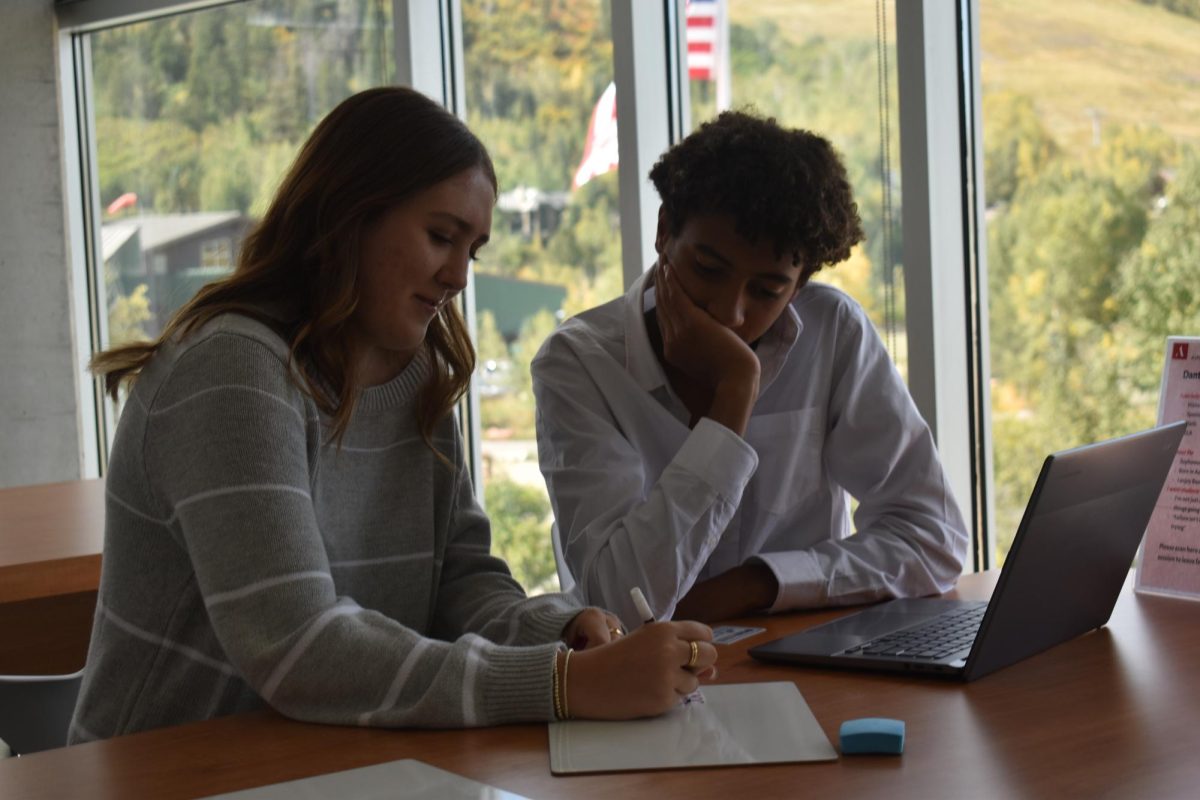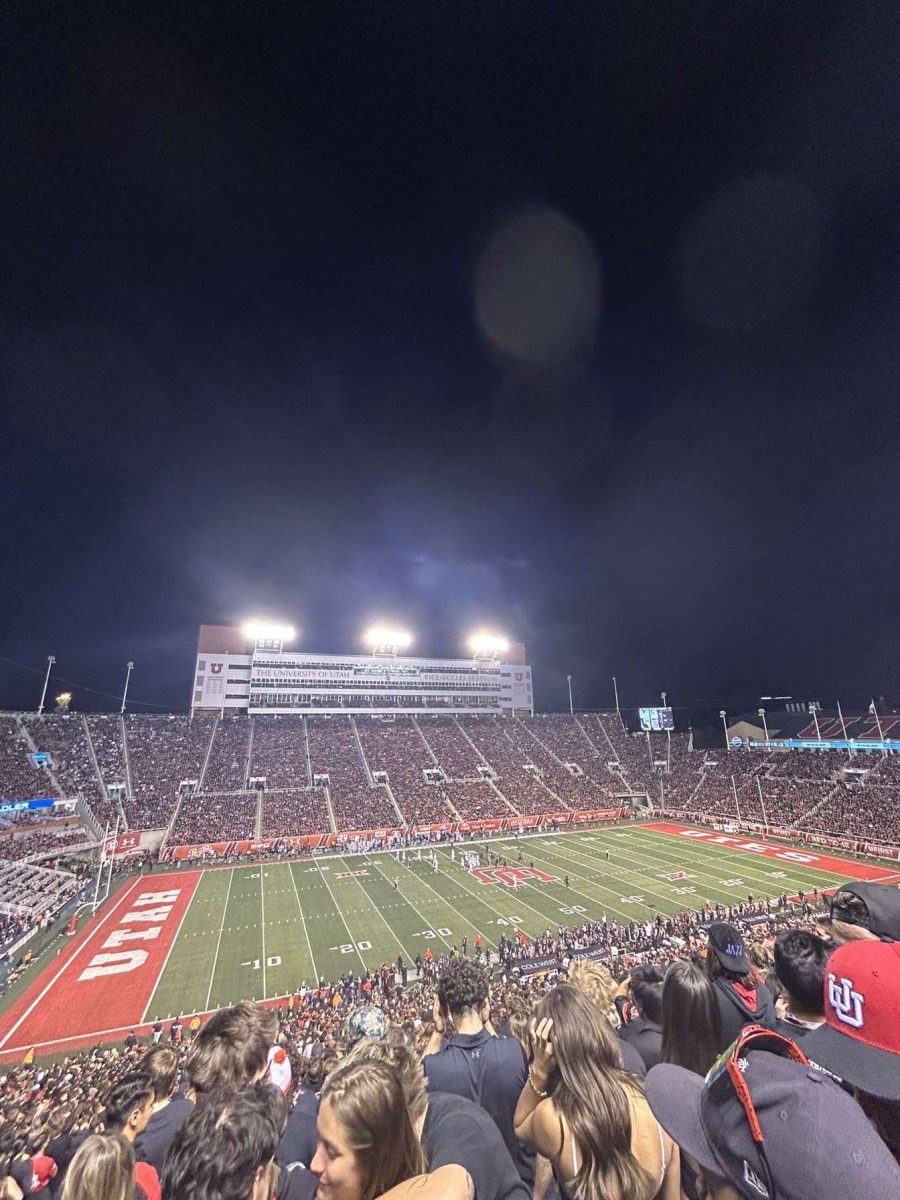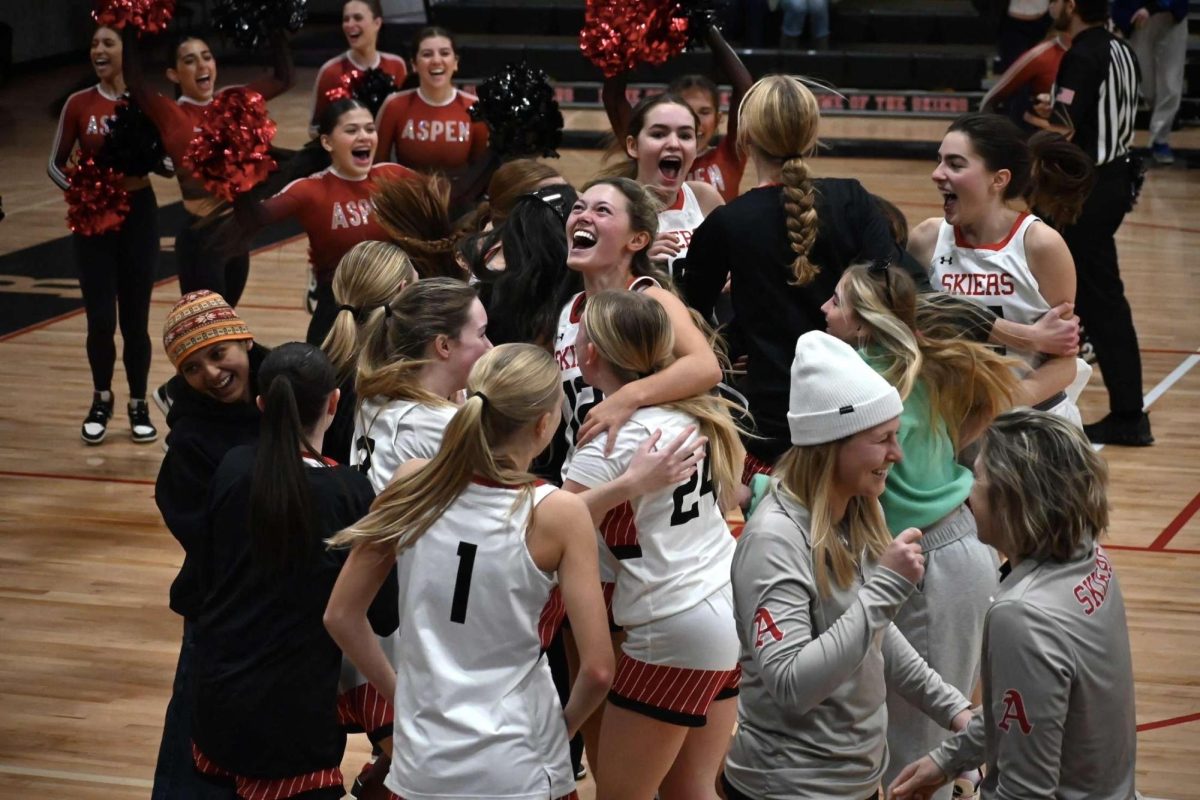The Homework Haul
After 8 hours of school, two hours of sports practice, and what seems like a million hours of driving to get home, you’re exhausted. It’s been a long day. On the way home, you were planning on maybe watching a movie, eating dinner, and of course, something every high schooler loves; going to bed early. You let your thoughts drift around your relaxing plans, but something changes as soon as you step through the front door of your house. All of a sudden, thoughts come one after another; you have a bio test tomorrow and haven’t studied. Shoot, and you have to read 30 pages of your English book. And oh, you forgot that you also have a history paper due first period, and you haven’t started. Your stomach turns, and you almost feel like crying as you realize you won’t be going to bed early tonight.
As much as I would like to say it’s not, this is the reality of many Aspen High School students’ lives. Many students at AHS go straight from school to sports to homework five out of seven days a week, leaving little time for breaks and relaxation. Ambler Henderson, a junior at AHS and an athlete on both the girl’s volleyball and basketball teams, believes that she has too much homework and not enough time to do it all.
“I have around 2-3 hours of homework each night. It’s really hard to have this much because practice is two hours, or if we have a game, that’s usually more time, and it takes out of my time to do my homework. And then after this, I still have to shower and eat dinner, so by the time I actually get to doing my homework, it’s already around eleven or twelve at night,” Henderson said.
According to the CDC, teenagers ages 13-18 need about 8-10 hours of sleep each night due to brain development that happens during sleep. A Cornell University Study shows that due to lack of sleep, students’ memory skills can be affected, among other things as well. AHS students are much too busy because of the amount of homework they are expected to do each night. The 2,3, or 4 hours students spend doing homework on top of a 2-hour sports practice, among other things, limits the amount of sleep students get, bringing it on average down to 4-5 hours a night. This is well under the minimum of 8 hours needed. Sophomore, Ela Stevenson, brings a great solution to the table in order to solve this homework-haul issue at the high school.
“I think we should have less homework at AHS, or if we do have homework to do, we should be allowed class time to do heavy-duty work like writing papers,” Stevenson said.
Much of the homework that students are assigned at Aspen High School comes from work started, but not finished, in class. Being able to have more time to do work in class would benefit students exponentially. From this, students could get more work done in class with an instructor to whom they can instantly ask questions that they usually do not have access to at home. Although teachers often build in-class time to complete class assignments like projects or papers, unexpected schedule changes, changes to the lesson plan, or a lecture going over by a few minutes can take away much-needed work time in class.

Having more class time to do this would also permit more time to spend sleeping, as well as spending more time with friends and family and doing things they love, such as sports, clubs, or playing an instrument. Spending more time doing these activities can actually improve academic performance, improve self-esteem, and help students develop deeper social connections, which will benefit students more long term than doing homework every night would.
However, there are many teachers and even parents at the school who believe that students should spend more time on homework as it helps students to better understand content in class which ultimately produces better test scores, etc. Of course, homework will always be unavoidable, but less unnecessary homework is never out of the question.
“I don’t think that giving homework just to give homework is important, but preparing for an exam and other things like that is important,” Sarah Benson, an AHS biology teacher, said.
Too much homework often creates an imbalanced schedule for students and often causes significant amounts of stress. AHS teacher Alex Regginelli believes that the amount of homework being given out by teachers is causing this to become a bigger problem.
“Our society bases our schedules on balance. We want about 8 hours to sleep, 8 hours to work, and 8 hours to play. That’s the idea. And it’s not a perfect system or ratio, but if students are here at school for 7 or 8 hours a day and are taking an additional 3 or 4 hours of their time after school, we are inherently creating an imbalance for students,” Regginelli stated.

Addy is a senior at AHS and has been on the Skier Scribbler for two years. She has always had a passion for writing and enjoys using journalism as an outlet...





















